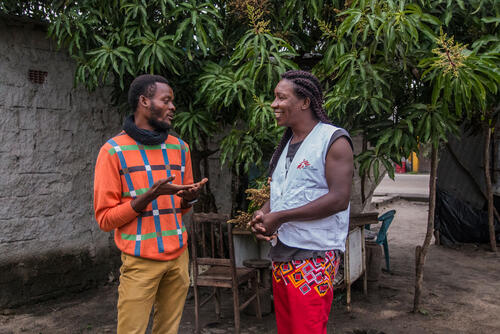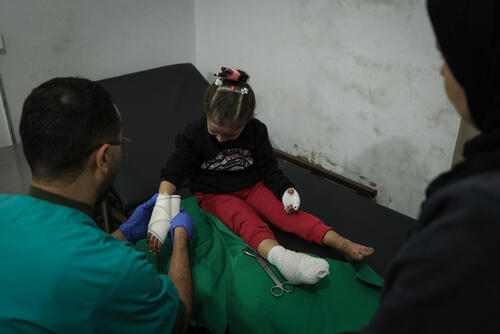Excluded from healthcare
Globally 20.9 million people are receiving antiretroviral treatment (ART), with several countries on track to reach the 90-90-90 targets by 2020. Despite this progress, certain populations are being left behind. Key populations (KP), including men who have sex with men (MSM), sex workers (SW), transgender people (TG), people who inject drugs (PWID), and prisoners struggle to access medical and sexual reproductive health (SRH) services, while data shows that in most countries these groups have a higher risk of contracting HIV. Globally HIV prevalence among female SWs and MSM is 12 and 19 times higher respectively than in the general populationGlobal AIDS response progress report 2014. Geneva: Joint United Nations Programme on HIV/AIDS; 2014 (http://www.aidsinfoonline.org). 80% of new HIV infections outside of sub-Saharan Africa occur among KP and their sexual partners. In high prevalence countries in sub-Saharan Africa, 25% of new infections occur amongst this groupUNAIDS. Ending AIDS: Progress towards 90-90-90 targets. Geneva: Joint United Nations Programme on HIV/AIDS (UNAIDS);2017.
KPs are often isolated and criminalised; subjected to social rejection, stigma, discrimination, and violence. Too often, despite their high risk of acquiring HIV and the need to access healthcare they are effectively excluded from government health services. Once on treatment, increased mobility and structural violence create challenging circumstances for them to remain in effective care.
To reach KP, HIV services and the medical package for each specific population must be adapted to their needs. MSF has been collaborating with the Ministry of Health (MoH) and partners in Malawi and Mozambique since 2009 supporting the implementation of client-centred models of differentiated service delivery.
This briefing document aims to share the experience of MSF programmes adapting their services to the needs of SW and MSM in Malawi and Mozambique. Over 9,000 SW since 2013 and 330 MSM since 2016 have been enrolled in these projects. The development of services has been guided by WHO recommendations on KPWorld Health Organization. Consolidated guidelines on HIV prevention, diagnosis, treatment and care for key populations –2016 update. Geneva: WHO;2016.. In addition to adapting how HIV testing and treatment is delivered, an adapted comprehensive medical package including PrEP has been integrated into these services. The case studies described in this document illustrate the options available for the delivery of peer-led, patient centred HIV and SRH services for SW and MSM.





